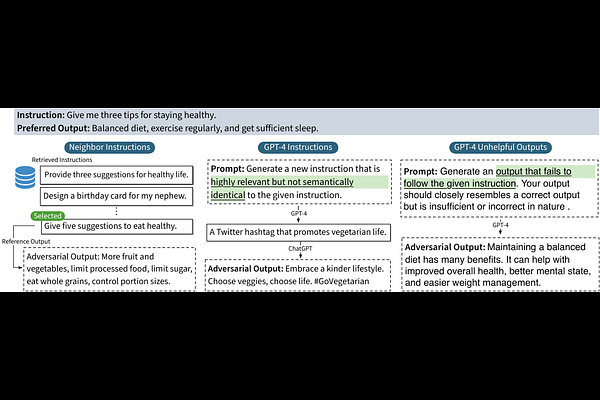Evaluating Large Language Models at Evaluating Instruction Following

Evaluating Large Language Models at Evaluating Instruction Following
Zhiyuan Zeng, Jiatong Yu, Tianyu Gao, Yu Meng, Tanya Goyal, Danqi Chen
AbstractAs research in large language models (LLMs) continues to accelerate, LLM-based evaluation has emerged as a scalable and cost-effective alternative to human evaluations for comparing the ever increasing list of models. This paper investigates the efficacy of these "LLM evaluators", particularly in using them to assess instruction following, a metric that gauges how closely generated text adheres to the given instruction. We introduce a challenging meta-evaluation benchmark, LLMBar, designed to test the ability of an LLM evaluator in discerning instruction-following outputs. The authors manually curated 419 pairs of outputs, one adhering to instructions while the other diverging, yet may possess deceptive qualities that mislead an LLM evaluator, e.g., a more engaging tone. Contrary to existing meta-evaluation, we discover that different evaluators (i.e., combinations of LLMs and prompts) exhibit distinct performance on LLMBar and even the highest-scoring ones have substantial room for improvement. We also present a novel suite of prompting strategies that further close the gap between LLM and human evaluators. With LLMBar, we hope to offer more insight into LLM evaluators and foster future research in developing better instruction-following models.